Archives: News and Updates
news-and-updates
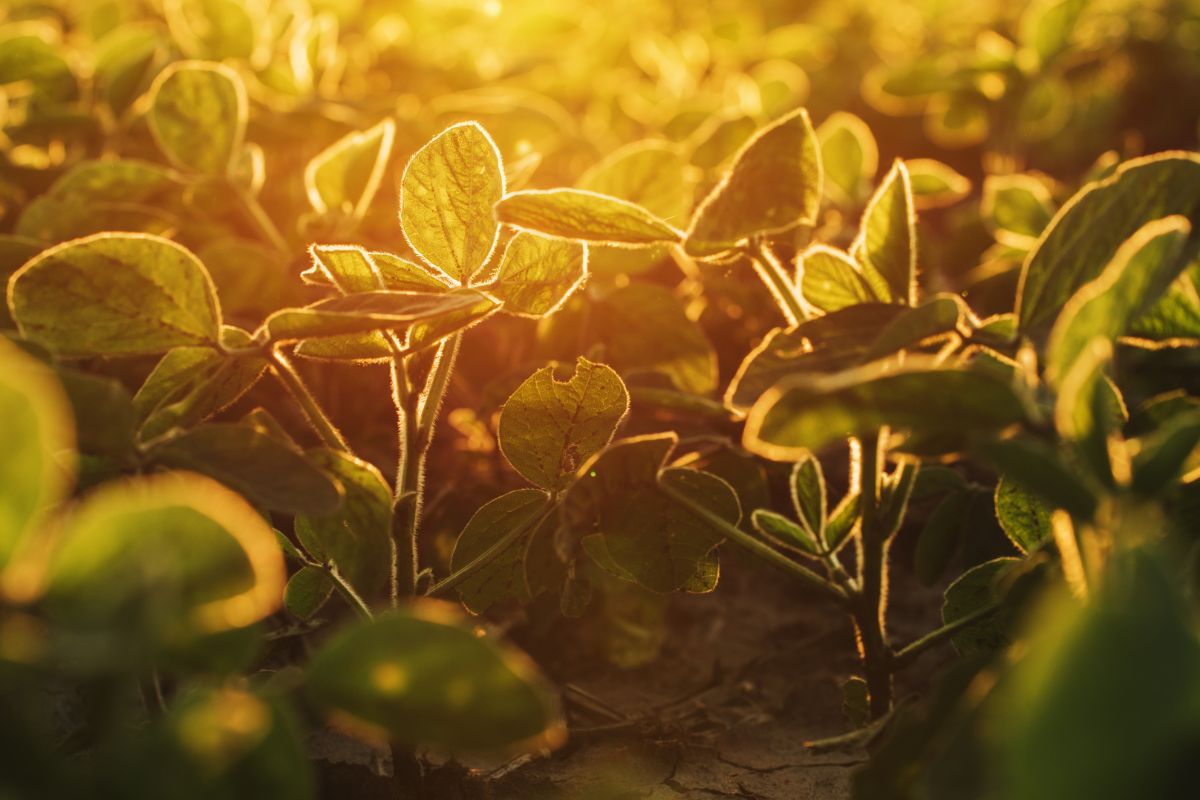
Aboitiz’s Biodiversity Conservation Programs in the Philippines
AboitizEyesThe Philippines is recognized as one of the world’s hottest biodiversity hotspots. While we should be a global conservation priority area, our home continues to face significant threats to our hosted flora and fauna.
Despite an increasing call for conservation and sustainability, human activity and urban development are slowly pushing our home to the edge of collapse. This is the very reason why we at Aboitiz Group continue to work on our biodiversity conservation programs in the Philippines.
Why Biodiversity is Important For Development
Us humans do not live alone on this planet. We share a home with countless forms of wildlife and plant life. Our neighbors deserve to thrive, just as much as we do.
And yet, our continuous development has degraded the environment and destroyed several habitats throughout the Philippines. This harms not just animals and plants, but also undermines our people’s livelihoods and creates social instability.
In that context, the need for biodiversity is pivotal for creating a healthy, sustainable, and mutually-beneficial ecosystem for everything living in the Philippines. With the use of biodiversity programs, we hope to promote conservation stewardship in every area we operate in, while also supporting our host community’s livelihood and long-term well-being.
Our Biodiversity Project Goals
Because our businesses directly interact and use the resources our environment provides, we know we have a great responsibility to preserve and protect it.
Through each of our business units, we have initiated several biodiversity programs to help manage our impact on Life on Water (SDG 14) and Life on Land (SDG 15).
To do that, we have come up with a few overarching project goals:
- Perform environmental impact assessments for each of our business projects.
- Manage different flora and fauna species in ecosystems located where we do business.
- Commit to reforestation and conserving biodiversity in forest areas in our host communities.
- Supply water to our host communities without compromising the integrity of our watersheds.
- Strengthen our disaster-risk reduction programs
Our Ongoing Biodiversity Programs
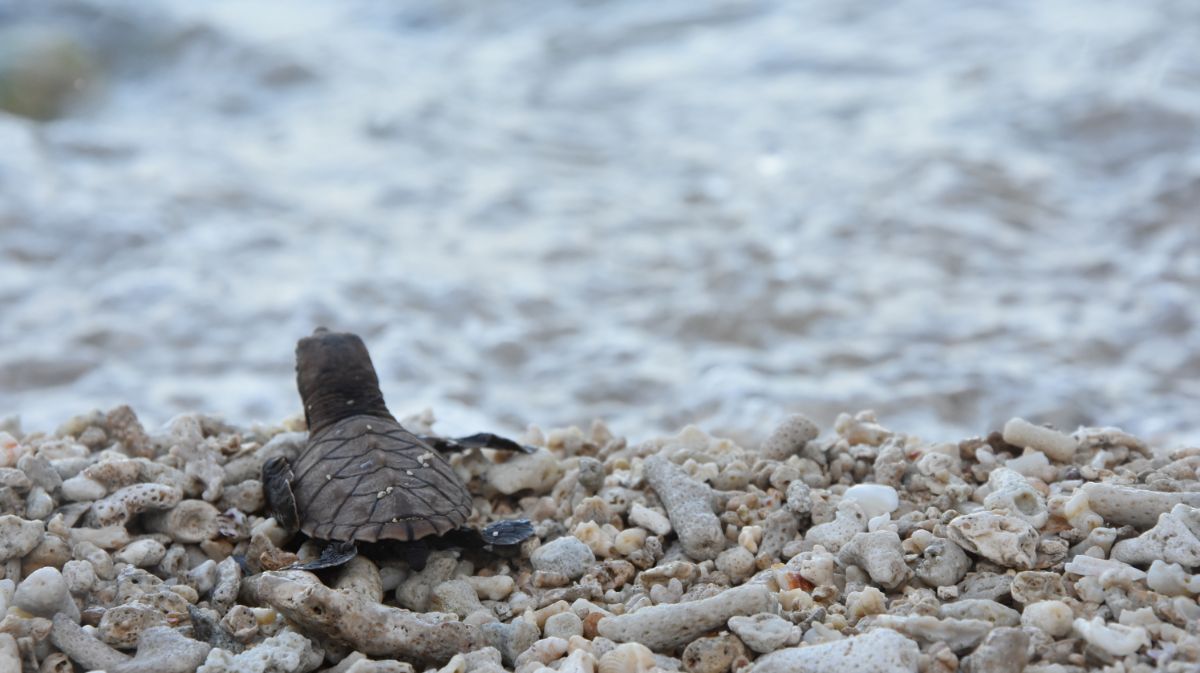
With decades of sustainability practices and initiatives under our belt, Aboitiz Group has had several successful biodiversity conservation programs across our areas of business. We recommit ourselves each year to these programs, and to continuing to spread positive energy to all aspects of life on Earth.
Some of our ongoing programs include:
Aboitiz Cleanergy Park in Davao
Our team at AboitizPower continues to spearhead conservation activities within our Cleanergy Park in Davao.
Here, indigenous fauna species, such as the pawikan, call this place home. Every year, we watch over new clutches of pawikan hatchlings and work to protect their nesting grounds and marine habitat!
We also provide educational programs, as it is important for our children to understand the situation of these animals and other endangered species, and promote awareness and compassion towards wildlife.
The Aboitiz Cleanergy Park is also home to a mangrove forest, where we have planted over 13,000 seedlings. This environment is crucial to the other species that live here, including several native bird species.
Hedcor Environmental Initiatives
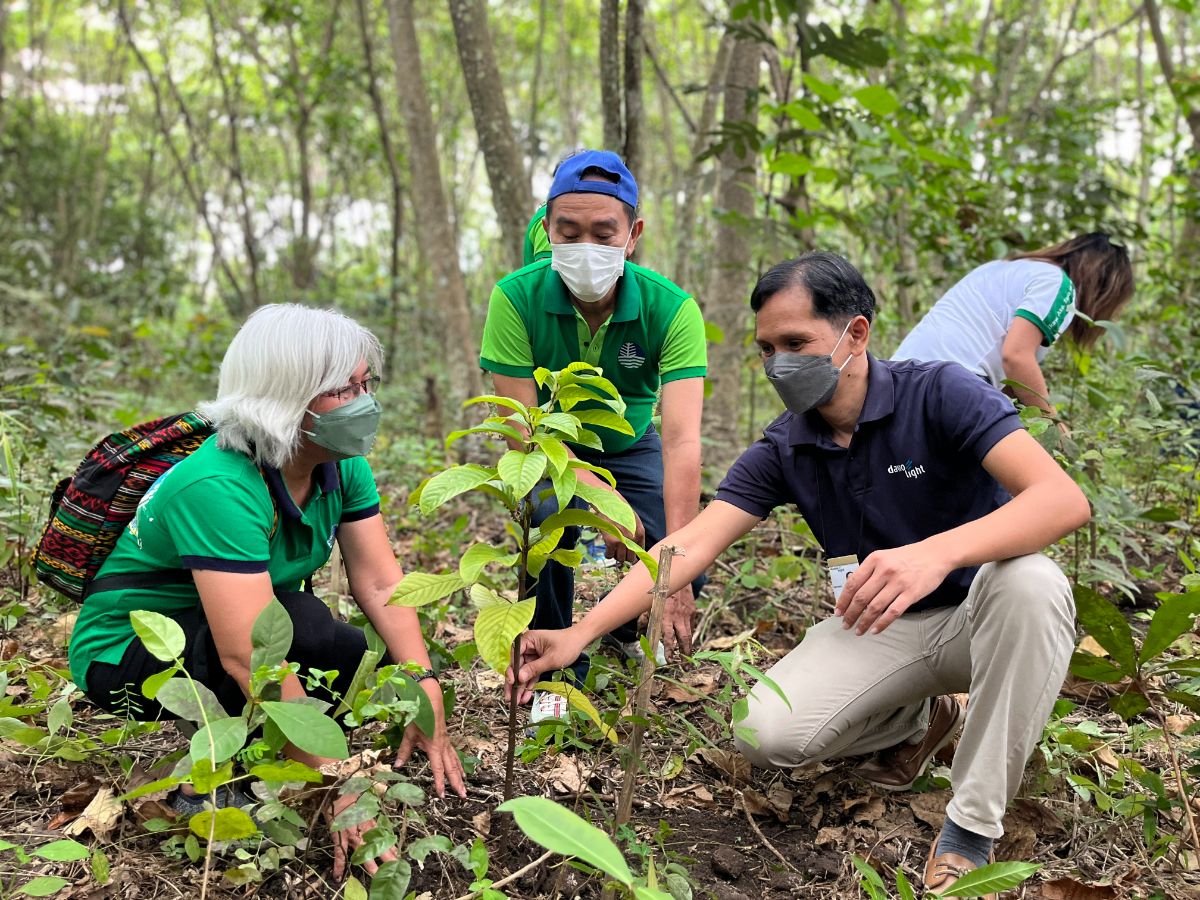
Hedcor, the site of our run-of-river hydropower renewable energy systems, is another important contributor to our biodiversity efforts.
Back in 2014, we entered into a wildlife inventory and biodiversity assessment project with UP Mindanao to look into who and what we were sharing our area with, and how to best preserve and support their habitat.
From that project came a five-year biodiversity enhancement action plan, which we used to conduct a series of environmental initiatives around our host communities. True to this plan, we have done several river clean-up drives, where we cleaned up over 1,300 kilos of waste last June.
Reforestation was also included in this action plan — which drove us to plant over 3.15 million trees in our host communities in Luzon and Mindanao. 89% of our planted saplings survived, and helped us regrow our forest habitats!
We also work very closely with community partners and engage in other programs as part of our biodiversity efforts. This includes things such as watershed management, educational workshops and campaigns, training for farmers and fishermen, and more!
Balabag Wetland Park
Our home’s wetlands are a vital spot for both marine life and migratory birds. They also support the people who live around them by giving them opportunities for livelihood and food. They also protect us, as they help mitigate the effects of CO2, typhoons, and heavy rains.
However, our wetlands are disappearing at an alarming rate — over three times faster than our forests — so we knew we had to do what we could to rebuild and preserve our wetlands.
In light of this, we worked closely with several government units, including DENR Region VI the Biodiversity Management Bureau (BMB) in Boracay to rehabilitate a wetland area that we call Balabag Wetland Park.
This linear urban park features a low-impact eco-friendly design, with landscaped walkways, clean lagoons, and more to entice visitors to enjoy the natural beauty and diversity of the wetlands. Here, educational programs will help promote awareness of the importance of this area, while community initiatives will encourage locals and visitors alike to help out through clean-up drives, regular maintenance, and protection programs.
#WowSanJuanRiver
Back in 2019, we joined in the battle for Manila Bay rehabilitation, in partnership with DENR, LGUs, and other stakeholders in a program we dubbed “#WOWSanJuanRiver.”
This biodiversity program mainly focuses on tackling the waste management system of Manila bay. We hope to improve the quality of water through recycling systems and reducing waste production in the area.
To achieve this, we will help establish more effective waste services in the communities that call the bank of Manila bays their home. Not only will this help lessen the amount of silt and garbage that makes its way to our creeks, but also help reduce the risk of water-borne illnesses that these communities are vulnerable to.
We also hope that, by funding proper education and awareness programs, we can encourage our communities to be more sensitive to the health of Manila bay, and instill a similar sense of responsibility to protect it.
Key Takeaway
While this is no exhaustive list of our biodiversity conservation programs in the Philippines, we hope that this shed some light on how we dedicate ourselves to providing sustainable solutions for protecting our home.
Through continued smart management and our #OneAboitizSustainability framework, we hope that the effects of our programs can help preserve our home and our local flora and fauna for generations to come. Click here to read more about our environmental initiatives!
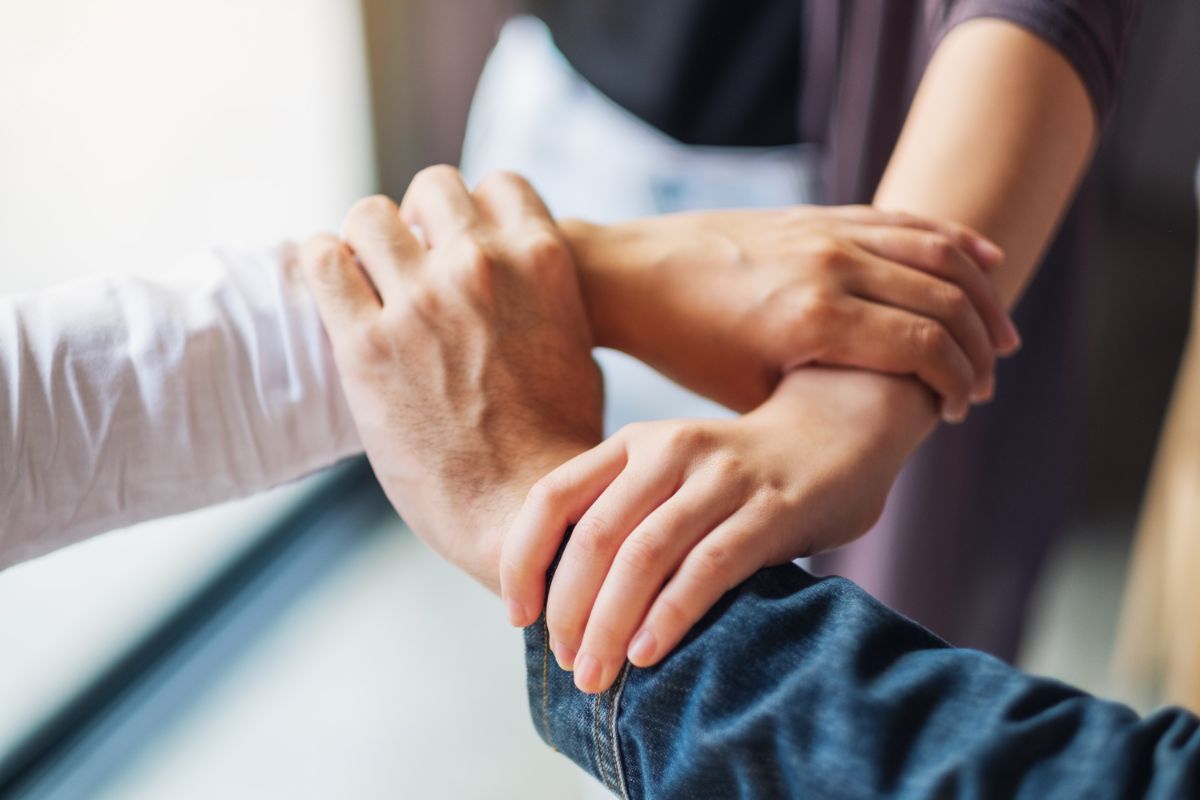
Social Innovation in the Philippines From Aboitiz Sustainability
AboitizEyesWhen we think of the word “innovation,” the image of new technologies and digital spaces comes to mind. However, there is much more to this concept than just engines developed for the growth of companies and the economy.
Under this concept is the idea of social innovation, which is what helps our people and our society prosper. Today we’ll dive deeper into social innovation in the Philippines, and why we at Aboitiz Group invest in it each year.
What is Social Innovation?
Social innovation is the process of developing effective solutions in response to prevalent social and/or environmental issues. Whether this involves changing business policies, setting up new outreach programs, or collaborating with governmental agencies, these innovations help businesses meet their stakeholders’ social needs better than before.
Social innovation can either target internal or external stakeholders — what’s important here is that such changes have a positive long-term impact at a large scale.
Why is Social Innovation Important?
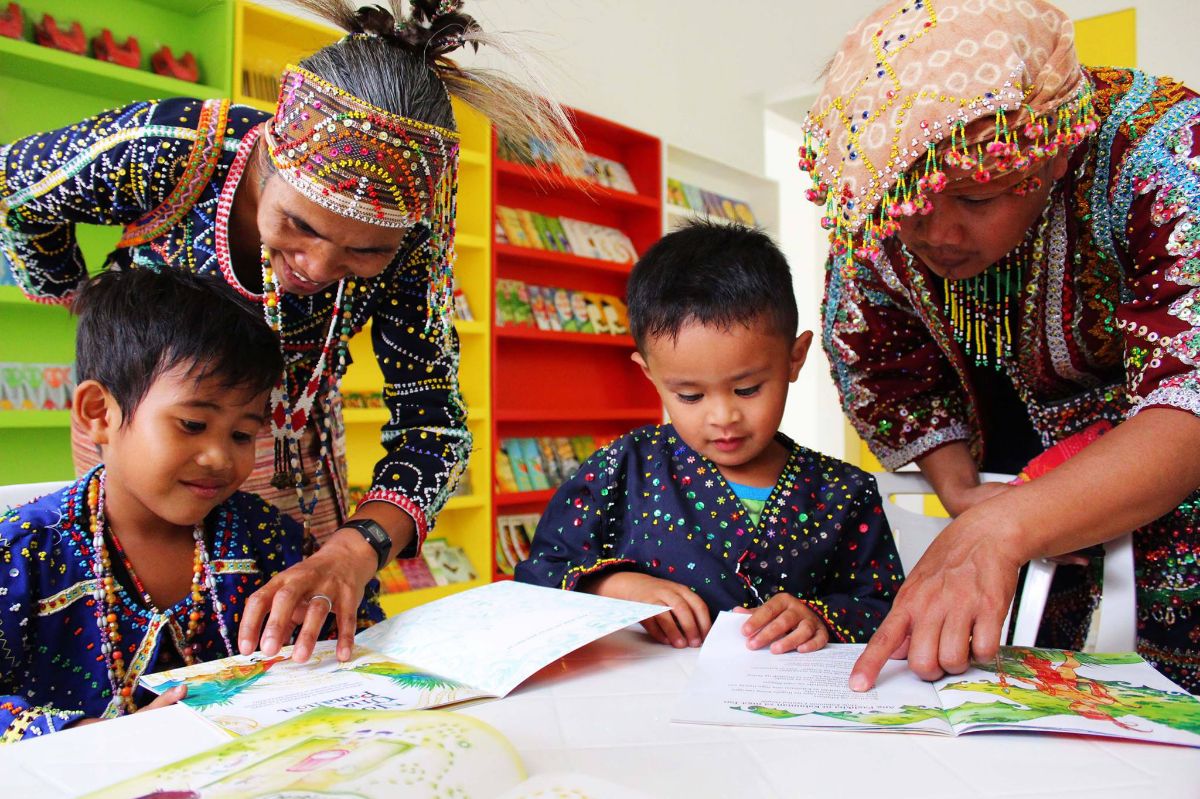
Traditionally, we thought of a “prosperous” society as one with a healthy economy — i.e., one with a high GDP.
But that’s not always the case. After all, the World Happiness Report found Finland to be the happiest place in the world — and for the fifth time in a row! They don’t have the highest GDP, and yet they have one of the most prosperous societies.
So why are the Finns more content and fulfilled? Many studies found that Finland is one of the most socially innovative countries, offering a great quality of life (and stability) to its people. These innovations also bring greater value to what public and private organizations provide to their people, leading to them being recognized as one of the fairest countries for even traditionally marginalized citizens.
What does this tell us? That today’s hyperconnected world means that societal problems are deeply intertwined with economic growth, financial stability, the political climate, and the general happiness of a country. These problems must be addressed, one way or another, for society to be truly prosperous.
When we look at the idea from this angle, we see that social innovation is the key to achieving it. This is because social innovation brings about necessary and effective change that directly addresses societal problems, which in turn helps sustain economic and social growth.
In a nutshell, embracing social innovation is about making sure your business does good for society, and fuels positive development — both internally and externally.
How Aboitiz Group Uses Social Innovation to Address Community Problems in the Philippines
When it comes to problems within our society, we often look to our government to address them. In an ideal world, they would have the capacity and the means to make substantial changes and meet the needs of our people.
This is not always the case in reality — but that’s where businesses like us come in. We know we have the power to help address these problems within our organization and host communities, so we step up and create the change we need.
That is, in fact, part of our Aboitiz Way. One of our core values is innovation, which we instill in our A-people and use to carry us through disruptive times. It’s how we help everyone that depends on us.
Throughout our various businesses (AboitizPower, Aboitiz InfraCapital, AboitizLand, Aboitiz Construction, UnionBank, Pilmico, and Republic Cement), we make collective efforts in using innovation in our policies and operations. As a result, we can provide better services and products, and further improve the value we create for our society.
For Our A-People
We take care to create a just and fulfilling workplace for our A-people. In that, we implement sound labor practices, ensure we operate responsibly, and empower our people to take part in what we do. This is possible through meaningful engagements we make with our team members.
First, we create a high-performing organization through our Aboitiz Academy Core and Effectives, mentorship partnerships, Project Me, and performance management initiatives — which equip our team with the skills and knowledge they need to create great work!
Second, we help develop aspiring leaders and support growth. This is possible through our leadership programs that take in those with high potential and tap into their latent strengths and competencies to mold the next generation of leaders in Aboitiz Group.
Build the talent pipeline and develop leadership to support growth
Next, we take steps to cultivate our core values and the right environment to nurture talent. We implement engagement programs, recognition programs, and total rewards management to encourage our people’s growth in a meaningful way.
Lastly, we ensure we deliver an engaging experience to everyone that joins our team. From onboarding to retirement, each step of your professional life with us is inclusive, optimized, and made to bring out the best in you!
For Our Host Communities
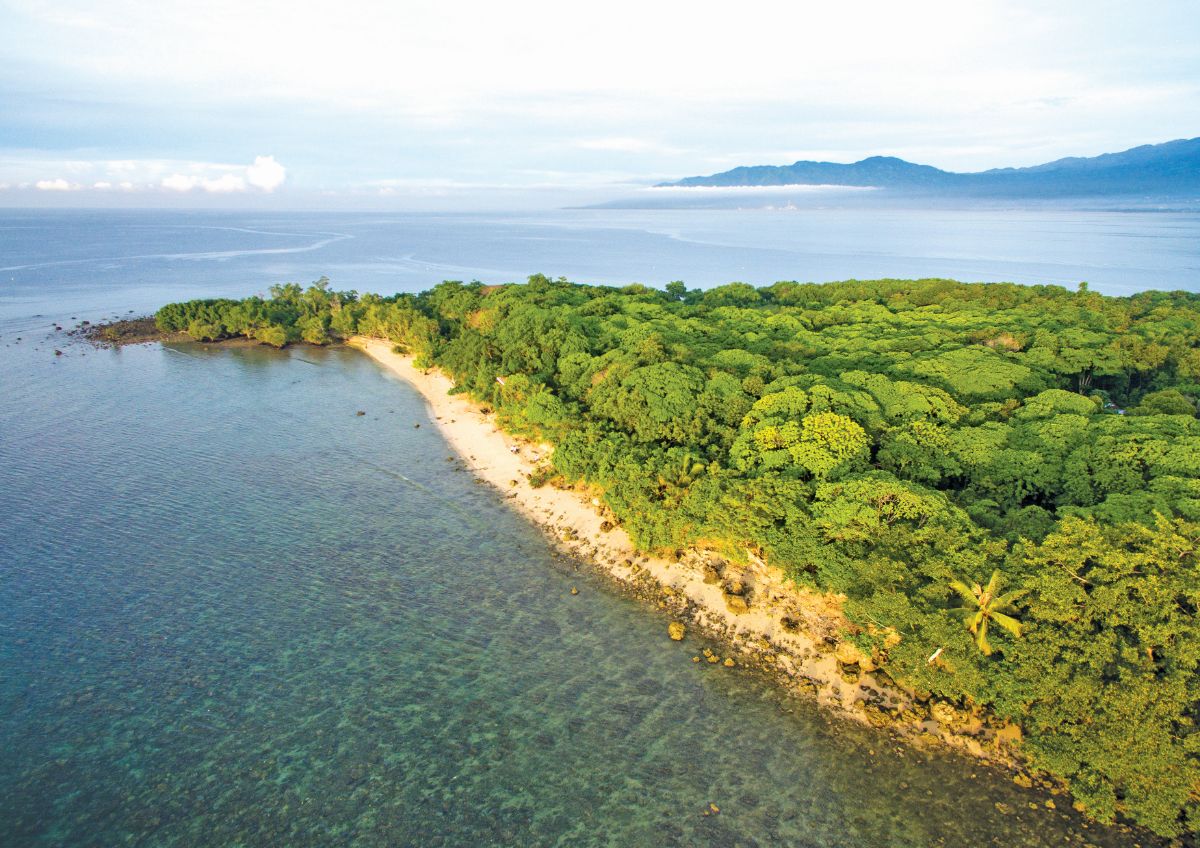
Each of our business units takes part in our goal for social innovation in the Philippines. To make sure that each project we undertake can deliver the much-needed changes for advancing our communities, we follow a specific framework: our CSR 2.0. This helps us design projects that are inclusive, collaborative, and scalable.
We also have iCSR regional councils: operationalized teams that deliver and manage integrated CSR projects in Luzon, Visayas, and Mindanao. Our iCSR councils meet and plan for such projects, and make sure they make the best use of the pooled resources and expertise from our business units and partners.
One example of our ongoing projects is the Cebu A-Park, spearheaded by our iCSR Visayas regional council. Not only is this project set to rehabilitate a 150-hectare area in the Buhisan Watershed, but it will also establish tree nurseries and plantation areas to bolster the local economy. Partner organizations within this community will also be trained by experts in project management and Disaster Risk Reduction Management, to improve their livelihoods and resilience.
Another example is led by our iCSR Mindanao regional council, a Cacao Agribusiness project in Davao city. Here, we partner with the Apo Farmers Multipurpose Cooperative (AFAMULCO) to teach them more effective farming methods, and new ways to participate in the cacao value chain and provide important connections for market selling and financing. This empowers them to not only earn more but also engage in more sustainable farming methods — which will be hugely beneficial for them and their families in the long run!
These projects are a part of a larger social innovation campaign: Aboitiz’s “25 Good Communities by 2025.” In this campaign, we take part in building resilient and innovative communities, with empowered members of society, and a strong and inclusive economy.
That said, this only scratches the surface of the social innovations we fuel and lead within our organizations and communities. Click here to see our contributions to this aspect of sustainable development so far!
Key Takeaway
There is a strong connection that links social innovation in the Philippines to our country’s well-being and growth. Only by investing in facing societal challenges, and scaling up our efforts in this arena can we build good, happy communities.
And that’s what we do — at Aboitiz Group, we co-create safe and sustainable communities in the hope of nurturing more prosperous generations of Filipinos everywhere. To learn more about how we deliver positive outcomes, visit our website!
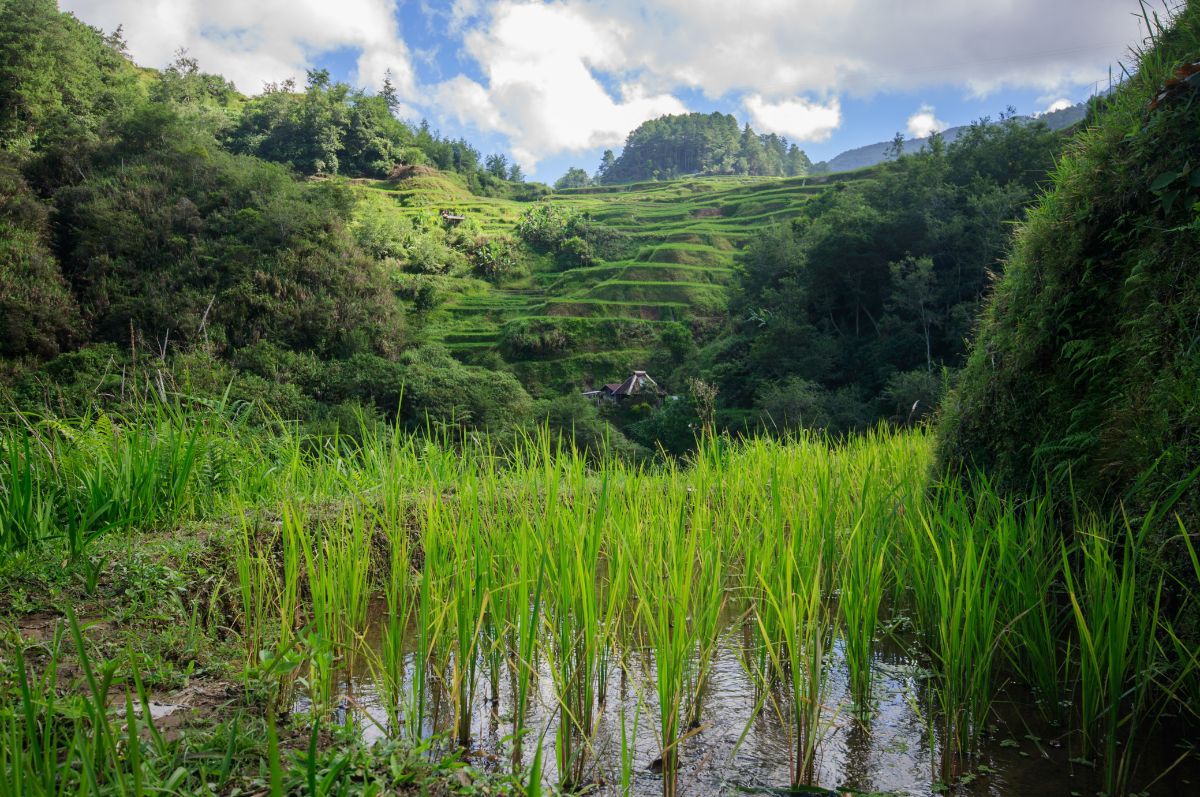
How Renewable Energy Development Helps the Philippines
AboitizEyesThe Philippine economy had boomed in the past, once hitting a 6.4% annual GDP growth rate and earning a spot on an elite list of countries experiencing uninterrupted development for more than two decades. However, the situation is starkly different today. The ongoing global health crisis has spared no one, affecting even the most powerful countries and even more so developing nations such as the Philippines.
As we pick ourselves up and move forward, we will need ample, reliable, and cost-effective energy to fuel our economy’s rebound. But in the face of external pressures to address climate-related risks, what kind of solution should we come up with? One answer comes to mind — renewable energy.
Why We Need Renewable Energy in the Philippines
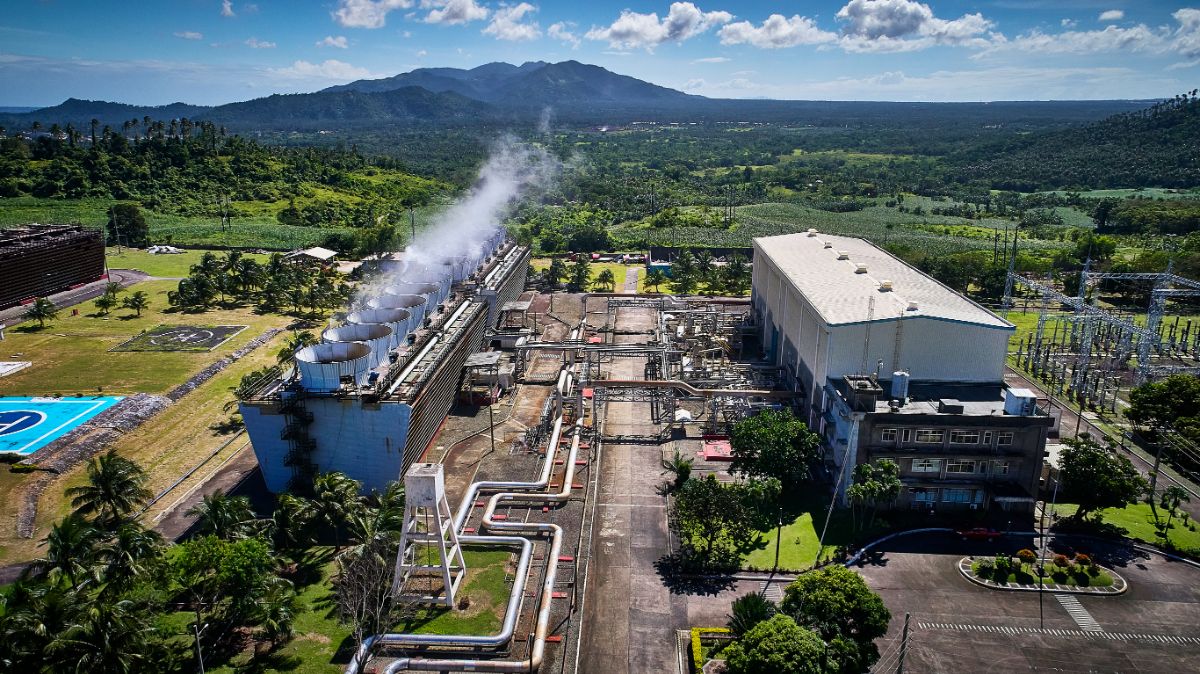
While there is an imperative to shift to cleaner, more sustainable energy sources, continued dependence on fossil fuels still makes a lot more sense for countries like the Philippines, where coal-fired power plants are still the most feasible and cost-effective option for baseload power generation.
A low-carbon economy, which the Philippines and the rest of the world look forward to having, is hinged on an equitable and timely energy transition. This strategy is necessary to ensure the economy doesn’t experience any shocks, given how the cost is still a primary concern about the transition.
With a growing understanding of this movement, more companies and other commercial consumers are making the pivot toward more sustainable operations by adopting RE use.
The Impact of Renewable Energy Development in the Philippines
The Philippines and other developing countries are facing the brunt of the global climate emergency, making the impact of the energy transition more felt compared with its developed counterparts.
For so long, the country has been dependent on fossil fuel imports, which makes us vulnerable to price volatility and supply constraints. As a result, we have among the highest electricity rates in Southeast Asia.
However, what the Philippines lacks in fossil fuel resources, it makes up for natural assets ideal for RE generation. This fact opens up opportunities to build more alternative energy sources and create reliable and affordable energy infrastructure for everyone’s benefit.
Once we move away from import dependence and tap into our country’s vast renewable energy potential, we improve our energy access, energy security, and energy sustainability.
Filipinos will be shielded from price fluctuations and will enjoy increased energy access even in rural and off-grid communities. Switching to renewable energy can also boost local economic development, and promote our investment climate — which, in turn, will naturally lead to more jobs, reduced commodity prices, and a more favorable economy.
Where We Stand on the Transition to Renewable Energy
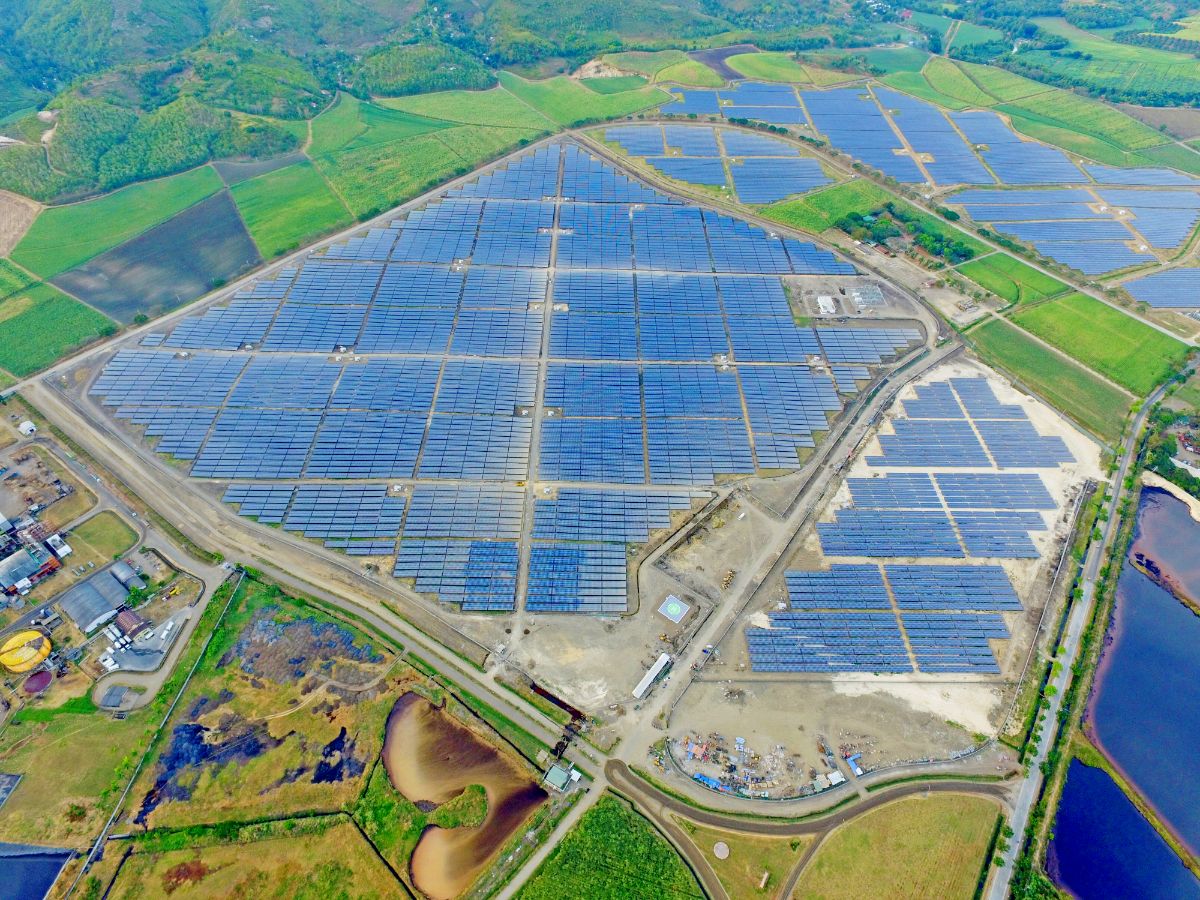
The Aboitiz Group recognizes that providing renewable energy solutions is key to solving the global challenge of power consumption and its negative environmental impacts. That’s why through our hydroelectric, solar, thermal, and geothermal plant facilities, we fill the nation’s growing power needs while championing efforts that minimize adverse environmental effects.
Despite the many challenges that stand in our way, our goal of reaching carbon neutrality and energy transition by 2050 is entirely possible — and our outlook is positive. The growth of our Cleanergy portfolio in the next 10 years will strengthen our contribution to the Philippines’ renewable energy goals.
This shift is heavily supported by several government initiatives from various branches, such as Congress’ recent resolution to declare a climate emergency. The Department of Energy (DOE) also declared a coal moratorium in 2020, which effectively bans the proposal and entry of any new coal-fired power plant in the country.
These steps have allowed for new investments in renewable energy to be promoted, with the DOE also announcing that they are looking into opportunities to expand or establish renewable, low-carbon, and no-carbon energy sources to fulfill the country’s growing energy demands.
While making this transition will initially be expensive — and time-consuming — we know that the long-term benefits we will reap as a country will be worth it!
Our Role in Renewable Energy Development in the Philippines
Aboitiz, through Hedcor, has been in the renewable energy sector for a long time, pioneering hydroelectric power generation over four decades ago. Today, AboitizPower, together with its partners, is the largest owner and operator of renewable energy based on installed capacity.
We support this call for cleaner, more sustainable energy sources by focusing in the next 10 years on further developing our renewable energy portfolio.
With the continued exponential growth of our Cleanergy portfolio, we aim to significantly contribute to our country’s renewable energy aspirations, as well as to global sustainability goals.
Shifting to renewables is simply the best chance we have to achieve energy independence and address the energy trilemma of ensuring energy security, providing access to affordable clean energy, and achieving environmental sustainability.
Having renewable energy is also a great and responsible way for us to help push for rural electrification.
By building up our Cleanergy facilities across the Philippines, we can achieve energy independence and a literally bright future for everyone. Read more about how we transform our energy resources into Cleanergy here.
Key Takeaway
AboitizPower’s Cleanergy portfolio, which seeks to provide reliable and ample sources of renewable energy in the Philippines, is our solution to the current energy and climate crisis. With the clean and sustainable energy we supply, we can reduce adverse impacts on our environment and economy while maximizing the benefits for our customers.
Aboitiz’s Sustainable Program Development in the Philippines
AboitizEyes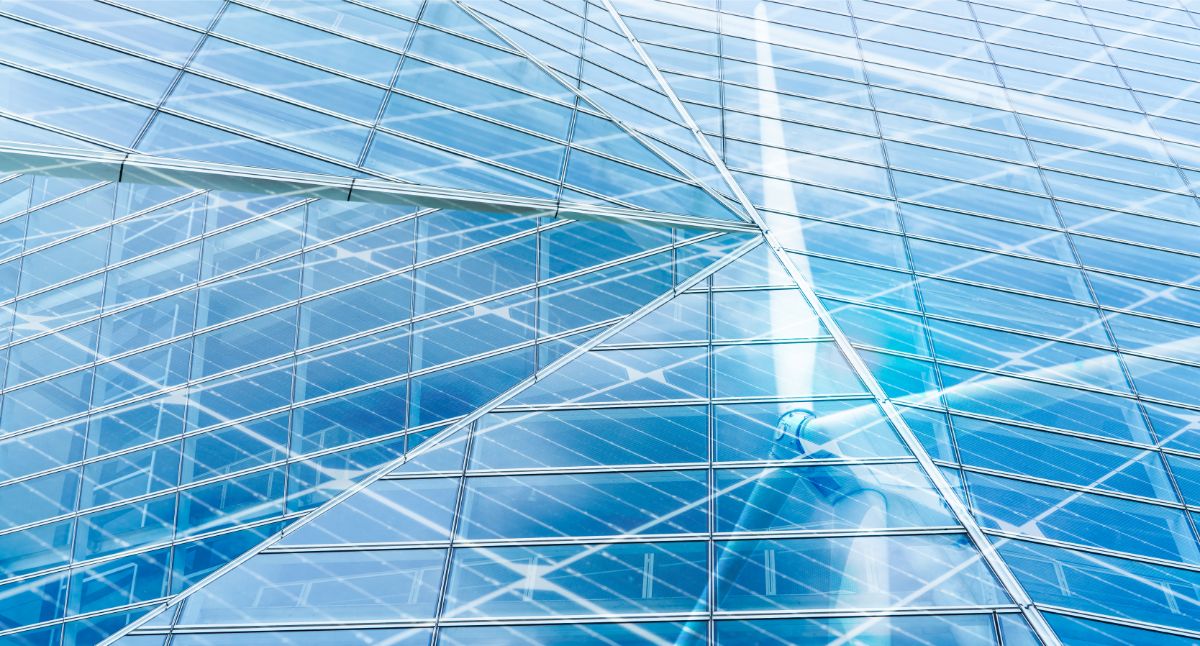
Our purpose (and the Aboitiz way) is to drive change for a better world by advancing business and communities toward a sustainable future for generations to come. This is why we continuously look for opportunities to empower our communities.
Aboitiz is supporting the United Nations Sustainable Development Goals (SDGs) and working to build inclusive communities, where everyone has a voice and equal access to what we create.
Here’s a closer look at our sustainable program development in the Philippines, and why sustainability in the Philippines is so important for our business:
What is a Sustainability Program and How does it Differ from a Sustainability Plan?
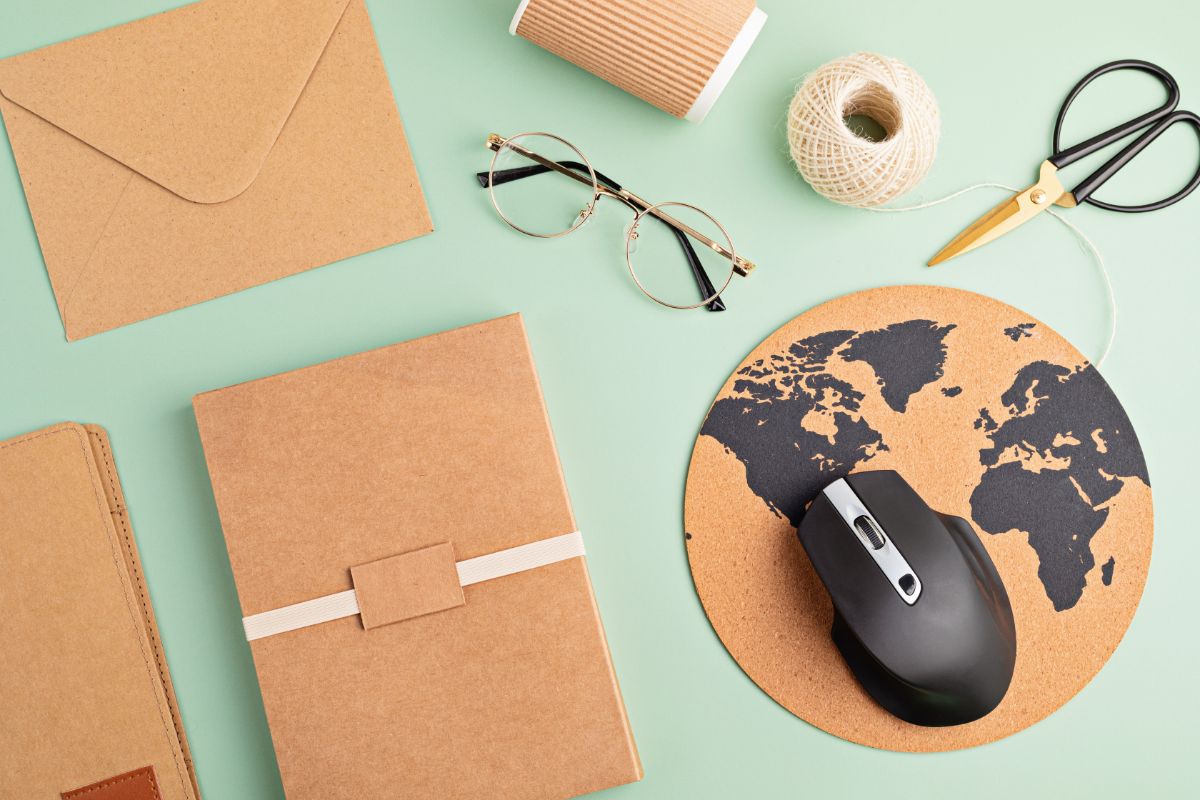
These terms are often used together. But these concepts are not interchangeable — they contribute differently to our sustainability vision and goals.
A sustainability plan is a course of action. We create these in advance and design them to fulfill a certain goal, usually in line with our chosen SDGs.
Our sustainability programs form part of the roadmap that we use to drive results and tell our sustainability story. This roadmap allows us to create structured and well-defined initiatives, and implement them properly.
We also think of sustainability as a living, integral part of how we do business — and we give it room to grow organically as our situation develops. As a result, we can quickly adjust and evolve according to our community’s needs.
Why Should We Continue Developing Sustainability Programs in the Philippines?
It’s a well-known fact that sustainability measures help a company be more purpose-driven, mitigate risks, and create long-lasting benefits for themselves.
But beyond that, we know that real value is being created whenever we continue developing a sustainability program for our organization.
It’s something that family patriarch and long-time leader, Don Ramon Aboitiz, started through his corporate philanthropy efforts, and that we in the Aboitiz Group continue till today with our CSR programs.
After all, to us, advancing business and communities is one and the same. We are guided by the “triple bottom line” approach — wherein the vitality of the economy, our environment, and our quality of life are closely intertwined.
We believe that the more we develop sustainable programs, the more we can contribute to nation-building and to societal good. This drives us to create meaningful progress for a better world, and one that will last for generations to come.
What are the Goals of Sustainable Program Development?
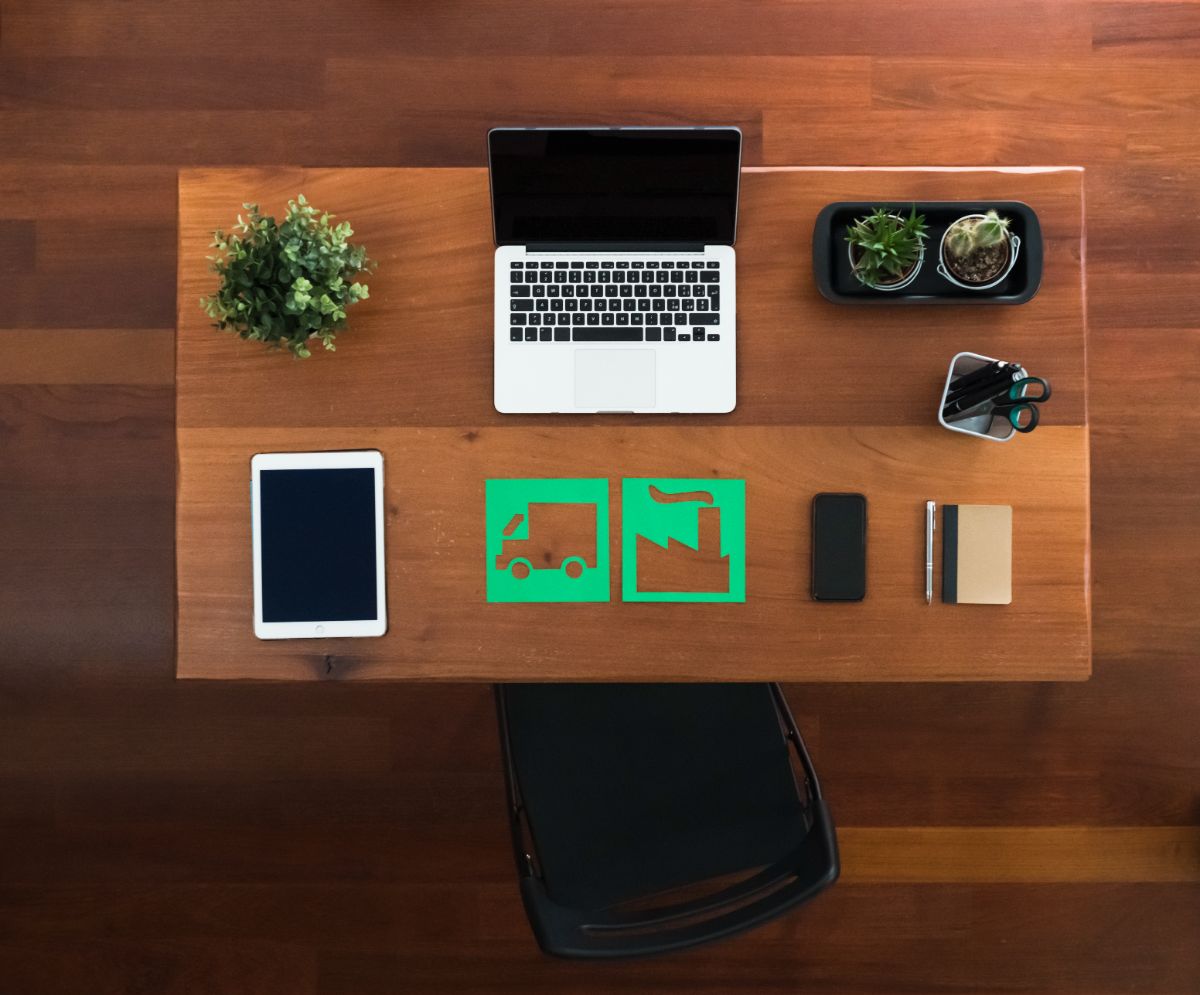
Many of the challenges facing our homes, such as the devastating effects of climate change, water scarcity, income inequality, and hunger, can only be resolved if we make an active commitment to positive growth.
These commitments are realized when we set goals for our sustainability programs. While our overarching purpose is to drive positive change for the Philippines, the specific goals of each program we develop differ from one to the next.
One program might aim to improve the biodiversity of an area we operate in, while another might seek to improve the livelihood and access to quality education in a different host community. Yet in every case, we make sure to set goals that will help us address the most pressing challenge that the area or community currently faces.
This has helped us align our programs towards each of the 17 SDGs (which you can see more about here). The more we continue our progress in each, the more we ensure the way we do business benefits our people.
What is the Aboitiz Group Doing in the Area of Sustainability?
We mentioned that our sustainability story all started with Don Ramon Aboitiz — which means that this is one story that spans over a hundred years!
Sustainability permeates each idea, decision, project, and program that is created within Aboitiz Group. As such, we’re both the pioneer and leader in sustainable development in the Philippines.
To continue this story for another 100 years, we have created business models in each arm of the Aboitiz Group — from the power to the finance industry — that seek economic growth, social progress, and environmental balance with the goal of improving the lives of present and future generations of Filipinos!
To achieve this, we have created many programs that help facilitate equal and universal access to basic services, such as banking, modern electricity, and safe and clean water. And, we have set up their infrastructure in such a way that we promote the health of the natural environment around them, and foster sustainable industrialization and innovation.
Beyond our business units, though, we want to help our people. That’s why Aboitiz Foundation exists — we work through them to invest in the education and enterprise development of our host communities, and co-create empowered and sustainable communities. We even help them tell their own stories!
We do much more than this, much more than we can possibly fit in this post — so we invite you to take a look at our sustainability performance and our policies here, or download our latest Annual and Sustainability Report here.
Key Takeaway
The growing pressure on our natural resources and our livelihoods cannot be ignored. If we want to protect what we have, and enable future generations to thrive as we have, then we need to continue our sustainable program development in the Philippines.
This is part of our credo to do business the sustainable way — and make positive contributions to the growth of our society and our country.
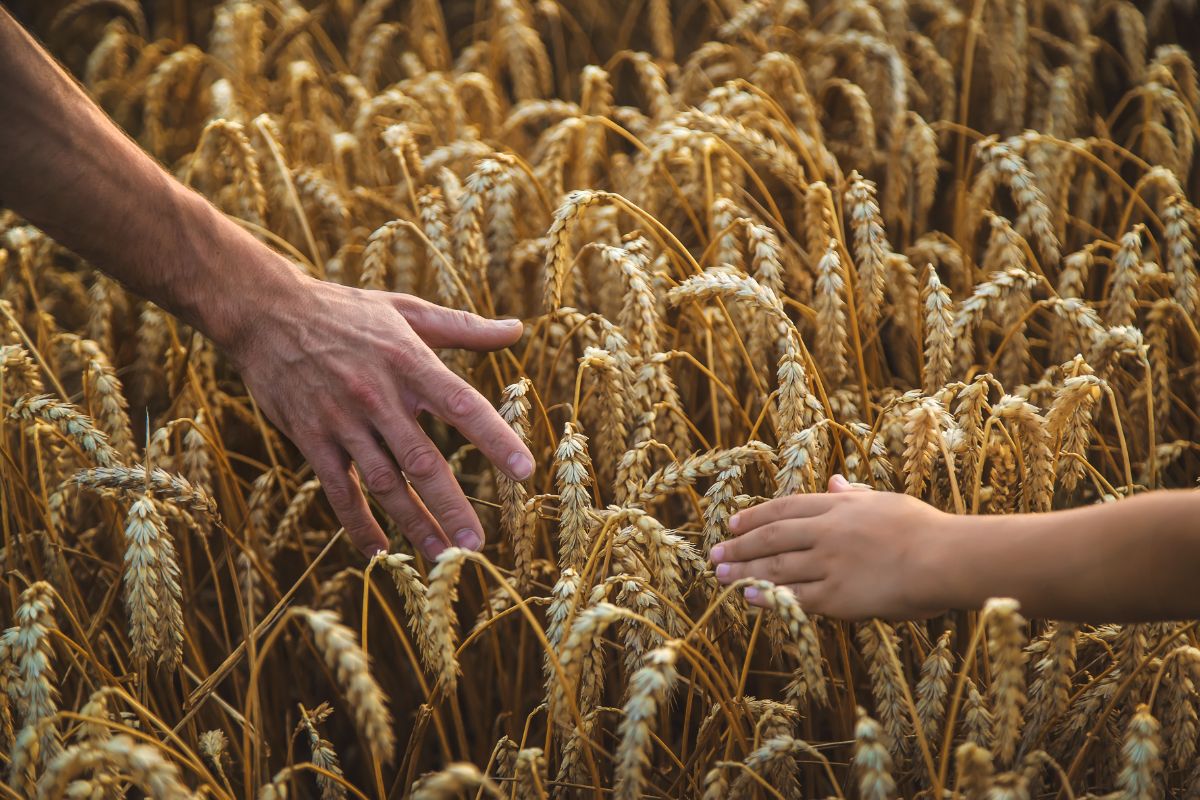
Management Approaches to Human Rights and Rights of Indigenous Peoples
AboitizEyesMost of our natural resources are found on land owned by indigenous groups, or inhabited by disenfranchised groups. And yet, many of them have suffered abuse, discrimination, and marginalization.
Such violations are not only an attack on their resources but also on their wellbeing and right to self-determination and autonomy. They are now calling out for drastic social reform. Echoing this call, we recognize that businesses have the opportunity to act out urgent and necessary changes.
There is a strong moral and ethical case to support the notion that businesses must implement management approaches to human rights, and the rights of indigenous peoples. We believe that, as a powerful actor in economic, social, and environmental development in our country, we have an obligation to integrate this principle into how we practice business within our sphere of influence.
Why Human Rights and Rights of Indigenous Peoples Should Matter to Businesses
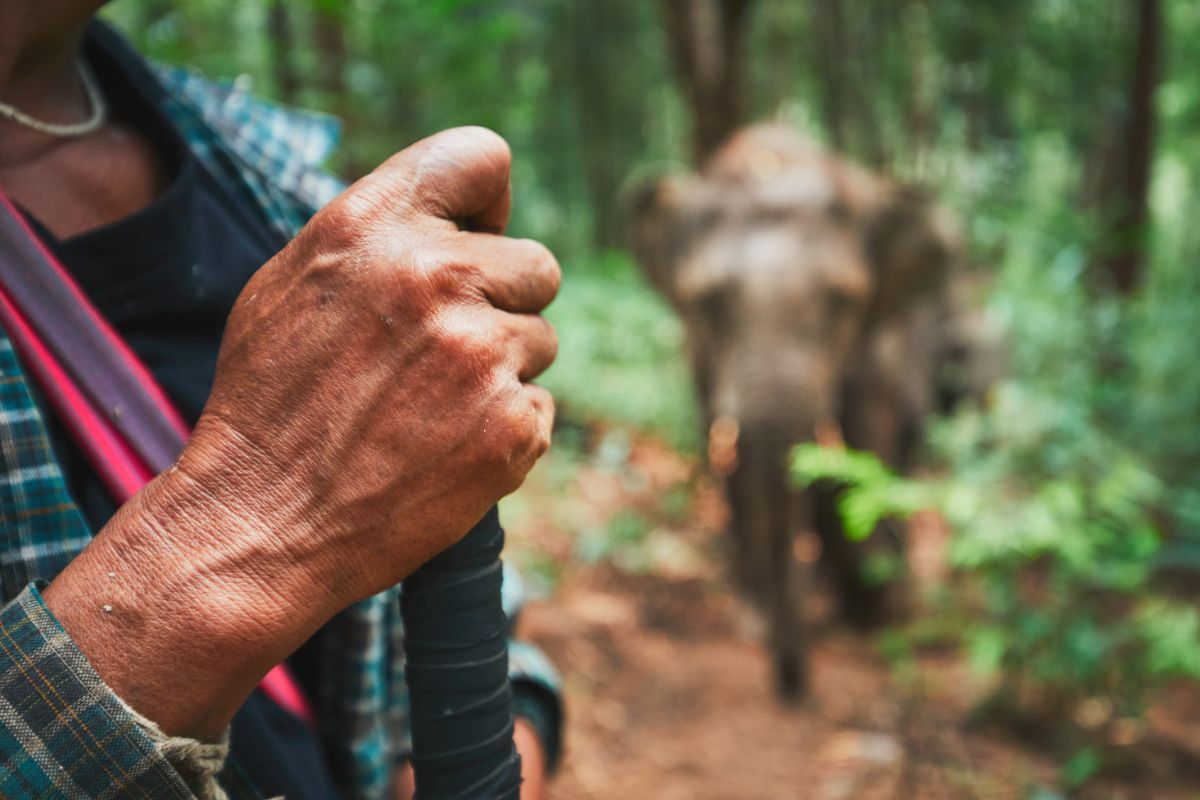
The debate about the nature and scope of business entities’ human rights and responsibilities is a recent one, as is the idea of applying human rights to business decisions and operations.
However, the importance of this concept cannot be understated. After all, humans are a part of every aspect of a business’s operations. As such, we cannot simply cordon human rights off in the CSR department.
All company functions, from human resources to legal compliance, interact with human rights every day, whether they realize it or not. True sustainability requires every aspect and department within a business to understand and manage its human rights impacts.
Indigenous peoples’ rights, in particular, have long been neglected by business entities. Their protection is important, as these groups can contribute significant knowledge, helping businesses better understand local operating contexts.
When businesses treat indigenous people with respect, we can obtain and maintain our social license to operate. We believe there are many opportunities, too, to involve indigenous groups in our business ventures, both as owners and partners. This will contribute to the long-term success of our projects, and help embed further value and sustainability in our host communities.
Thus, achieving equality and dignity for all should be the guiding principle of how businesses perform their work. Prioritizing the application of a human rights-based management approach is a must for businesses everywhere.
The Aboitiz Strategy to A Human Rights-Based Management Approach
Aboitiz Group knows we owe our success to the people, and that we are only as strong as the bond we have with our host communities. Thus, we take steps to ensure we not only maintain these meaningful and mutually-beneficial relationships but also foster new ones.
This is why we at Aboitiz Group make sure to deliver on our social commitment, through the countless activities, programs, and advocacy efforts that we implement each year. This helps us contribute to the overall development of our organization as well as the communities we serve.
To become an ever-more reputable and trustworthy partner in nation-building, we know that no one can be left behind. This is how we ensure our projects are inclusive, collaborative, and scalable, and provide much-needed reform to the oft-forgotten marginalized groups.
Our human rights-based management approach can best be summarized through our seven parameters:
- Addresses a community need — tackles a specific problem in the community, and provides an inclusive impact that uplifts the welfare and livelihoods of the beneficiaries.
- Aligns with our core business — the program relates to the core business of our SBUs, such as power, banking, financial services, and other facets of the Aboitiz Group.
- Helps our businesses — has reasonable returns, enhances key stakeholder relationships, promotes understanding and social acceptance of our projects, assists in the unimpeded operation of the company, or creates other such competitive advantages for our SBUs.
- Aligns with the Aboitiz Foundation’s programs — align with our commitment to providing quality education, continued enterprise development, and a preserved natural environment.
- Involves skills training and capability building — provides some manner of training for the beneficiaries, which they may use to improve their income or livelihood.
- Encourages team volunteerism and participation — our people are empowered to take part in our projects.
- Nationwide in scope — projects are scalable and replicable across the Aboitiz Group scope of influence.
Our Priority Program Areas
Through our seven parameters, we have been able to implement several commitments across our subsidiaries, which all provide inclusive benefits and promote the sustainability and development of our host communities.
While our scope is wide, we do have program areas we hold close to heart in our commitment to being a ‘force for good.’. Our priority program areas are:
Education as an enabler for empowerment
Since the inception of the Aboitiz Group, we have invested heavily in providing access to quality education throughout the country. We work with various educational institutions, the Department of Education, and various organizations to execute programs that target those in need.
This helps guide them towards becoming skilled and knowledgeable graduates. In turn, they can become productive members of the workforce.
We also continuously work with our partners to establish and improve learning facilities, set up training programs, and conduct feeding programs to assist local schools and colleges around the country.
One such example of our dedication to this goal is the “Tabang Pa-Eskwela sa Tribo” program. As one of the supporters, Aboitiz Group commits to annually providing school supplies and other needed learning materials to indigenous children. Through this program, we have been able to help over 8,000 indigenous students, particularly those who are from the geographically isolated and economically less-privileged communities of Davao City.
We hope that our assistance helps to motivate and empower these indigenous students to go to school, where they can receive the proper education that will help them later on in life.
Enterprise Development towards shaping resilient enterprises
We also focus on providing end-to-end, cost-efficient programs for community-based business endeavors. This entails that we provide relevant support to these enterprises, from production to marketing, as well as leveraging resources to establish the infrastructure, financing, and market linkage they need to do business.
This helps us shape and establish resilient communities, and promote their sustainability.
Our recent efforts through our food unit, Pilmico, are a prime example of this. Through them, we committed to sustaining farm livelihood projects for local farmers and Indigenous Peoples in Iligan. This project is supported through close coordination with the area’s LGU and seeks to empower farmers to be efficient ‘agripreneurs,’ and create a more sustainable economy for them.
Aboitiz Group is working with the Marawi Baloi Farmers Association and Hindang Multi-Purpose Cooperative (MPC) through the Inclusive Agribusiness Project (IAP) to scale up their production. This will help local farmers take advantage of the new significant demand for yellow corn. Thus, organizational sustainability and improved, consistent income for their members can be achieved.
To ensure that the fruits of this project can be reaped for years to come, Aboitiz Group also provides skills training, updates on farming equipment, and donations to help increase their production volume and meet market demands.
Advocating disaster preparedness and resilience
Our environment initiatives focus on building the resilience and preparedness of our host communities. This entails providing community-based disaster risk reduction and management (CBDRRM) training workshops, which help their people identify local risks and hazards and develop their action plans to mitigate risks.
Our efforts in this priority area are in partnership with the WeatherPhilippines Foundation (WPF) under its #WeatherWiser Nation campaign.
Aside from that, we also have an ongoing project for reforestation and environmental sustainability. As of 2019, we have planted 6.9 million trees out of the 9 million target by 2020. We also implement smaller tree planting initiatives in many of our facilities. Take, for example, Hedcor’s hydro facilities in Davao del Sur, where we recently hit a milestone of 3 million trees planted in our reforestation site, Bakakan E-Camp.
We also maintain the Aboitiz Cleanergy Park, a turtle sanctuary located in the coastal area of Punta Dumalag. Aside from serving as a haven for pawikans, it is also home to dozens of rare bird species. Both thrive in the safe and secure environment that we maintain for them. We are also establishing a new nature sanctuary, the Balabag Wetland Park in Boracay, in collaboration with DENR.
Key Takeaway
Human rights are the essence of sustainability. We at Aboitiz Group have always firmly believed in the role of community growth in business sustainability and development. Thus, our management approaches to human rights aim to be inclusive, and always aspire to contribute to the wider world.
Simply put, we know that a sustainable world must be built upon the blueprint of basic human dignity and respect. Read more about our commitment to giving back here.
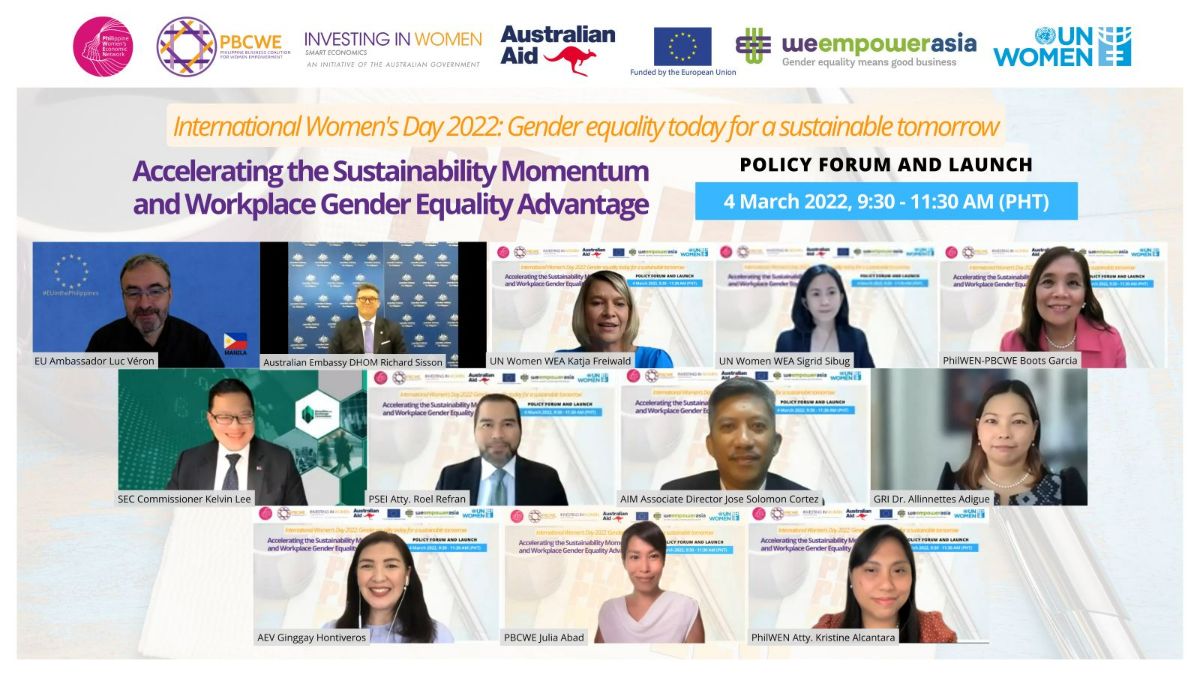
Aboitiz Group steadfast in accelerating workplace gender equality in the Philippines
AboitizEyesThe Aboitiz Group remains steadfast in its commitment to accelerate workplace gender equality in the Philippines, emphasizing its importance in the Group’s #OneAboitiz Sustainability Framework. The Aboitiz Group sits on the board of trustees of the Global Compact Network Philippines (GCNP), and two of its companies—Aboitiz Equity Ventures Inc. (AEV) and Aboitiz InfraCapital (AIC)—are members of the Philippine Business Coalition for Women Empowerment (PBCWE).
Read more about the story here: https://aboitiz.com/aboitiz-group-steadfast-in-accelerating-workplace-gender-equality-in-the-philippines/
![Kinder by Aboitiz assist coops through Project [RE]start](https://sustainability.aboitiz.com/app/uploads/2022/12/IMG_5925-1.jpg)
Kinder by Aboitiz assist coops through Project [RE]start
AboitizEyesAboitiz Foundation, in partnership with Aboitiz business units, recently turned over “restarter kits” to three cooperatives located in Luzon, Visayas and Mindanao. The funds for the kits came from Kinder By Aboitiz, a crowdfunding platform created by Aboitiz Foundation that makes it easy and accessible for people to donate and promote a culture of generosity.
The Livelihood Recovery Project for Partner Cooperatives and Associations Nationwide or “Project [RE]start” supports partner cooperatives by donating “restarter” kits such as farm inputs and sewing materials. These kits will help organizations rebuild their cooperatives and support the livelihood in local communities.
Read more about the story here: https://aboitiz.com/kinder-by-aboitiz-assist-coops-through-project-restart/
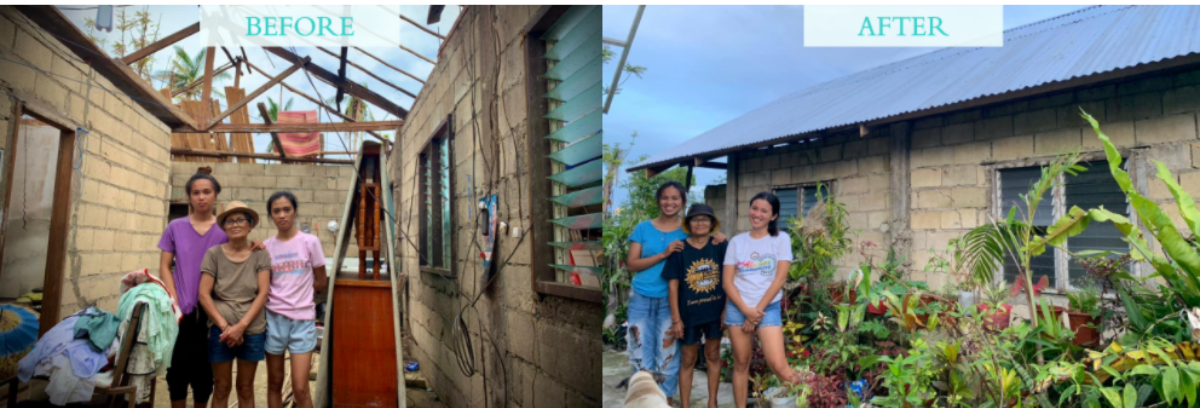
Siargao homes hit by Typhoon Odette get help from Aboitiz Foundation
AboitizEyesAboitiz Foundation, the corporate social responsibility arm of the Aboitiz Group, partnered with Barna Hosco Inc., in Siargao Island to help rebuild homes heavily damaged by Typhoon Odette. The rebuilding efforts benefited 13 families.
“The Typhoon Odette devastation amid the COVID-19 pandemic has made life immensely difficult for so many families without roofs over their heads. As #OneAboitiz, the Foundation will continue to provide relief and support rebuilding efforts to help our fellowmen in these trying times.,” said Aboitiz Foundation President and COO Maribeth L. Marasigan.
Read more about the story here: https://aboitiz.com/siargao-homes-hit-by-typhoon-odette-get-help-from-aboitiz-foundation/
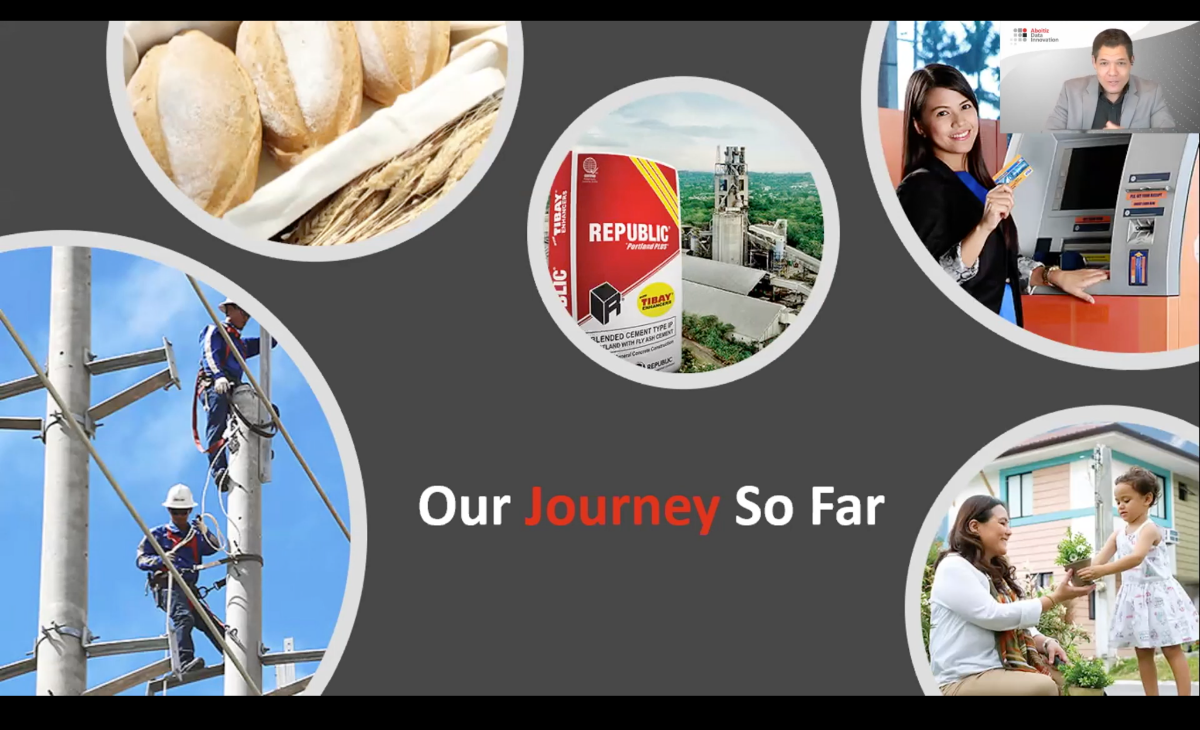
Aboitiz Group leaps forward with strong Innovation initiatives
AboitizEyesThe Aboitiz Group proves that being more than a hundred years old doesn’t mean a conglomerate can’t reinvent like a start-up. The Group recently unveiled the “Aboitiz Great Transformation,” its newest strategy to jumpstart hypergrowth initiatives and transform its subsidiaries by exploring new businesses and revenue streams, and transforming its services to stakeholders through increased digitalization and innovation.
Several initiatives established in 2021 have proven to be strong foundations for speeding up the Innovation journey across the Group. With these starting points firmly in place, Aboitiz is poised to leap forward in its respective industries, revolutionizing the way it moves within Philippine and ASEAN communities and business landscapes.
Read more about the story here: https://aboitiz.com/aboitiz-group-leaps-forward-with-strong-innovation-initiatives/
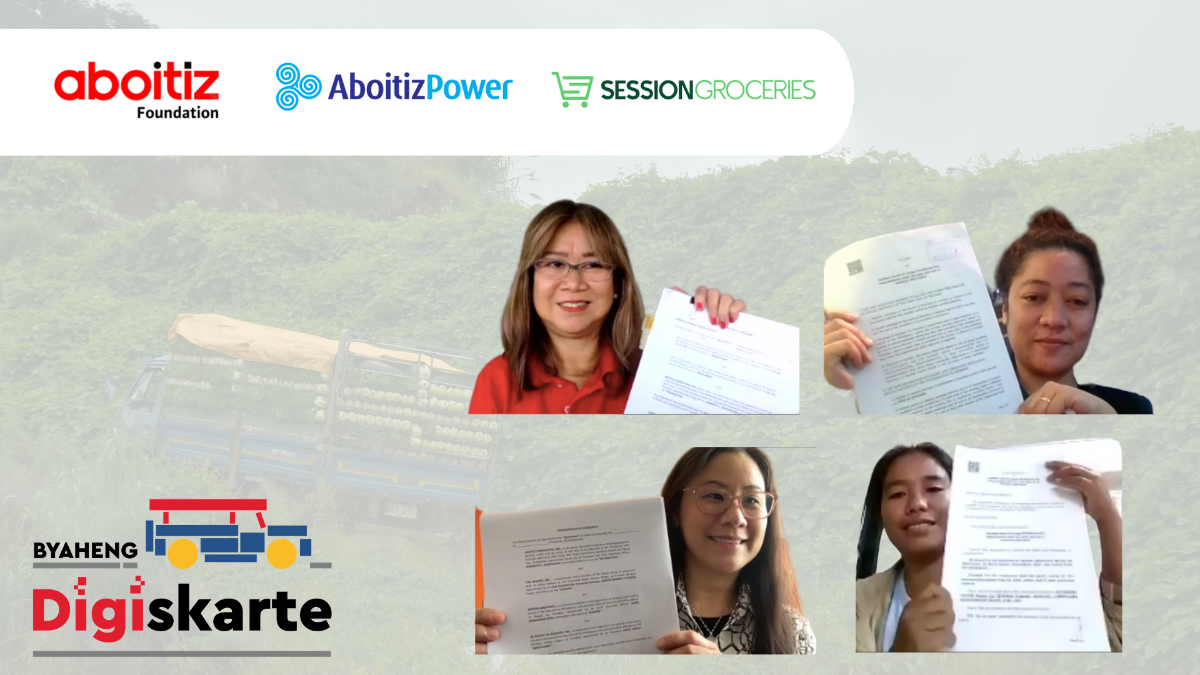
Aboitiz Foundation’s Byaheng Digiskarte goes to Benguet with Session Groceries
AboitizEyesAboitiz Foundation, the corporate social responsibility arm of the Aboitiz Group, together with AboitizPower’s subsidiary Hedcor Inc., signed a memorandum of agreement with Session Groceries and SG Farmer group for the “Byaheng Digiskarte goes to Benguet” Project. Aside from the mentoring sessions, the farmer beneficiaries will receive capacity building training and food processing starter kits.
‘Byaheng Digiskarte’ is the micro, small, medium enterprises (MSMEs) and cooperative mentoring program of Aboitiz Foundation in partnership with the Department of Trade and Industry (DTI), Cooperative Development Authority (CDA), Department of Agriculture (DA) and various mentor partners. The project, which covers several Aboitiz supported cooperatives nationwide, will make a stopover in Benguet for its Luzon leg.
Read more about the story here: https://aboitiz.com/aboitiz-foundations-byaheng-digiskarte-goes-to-benguet-with-session-groceries/
